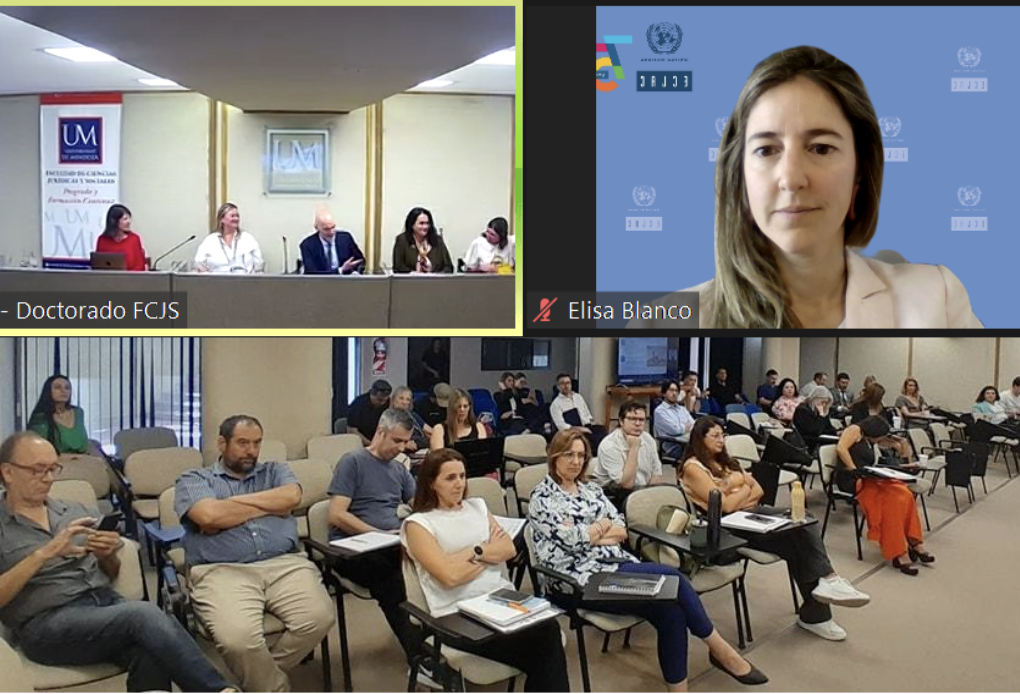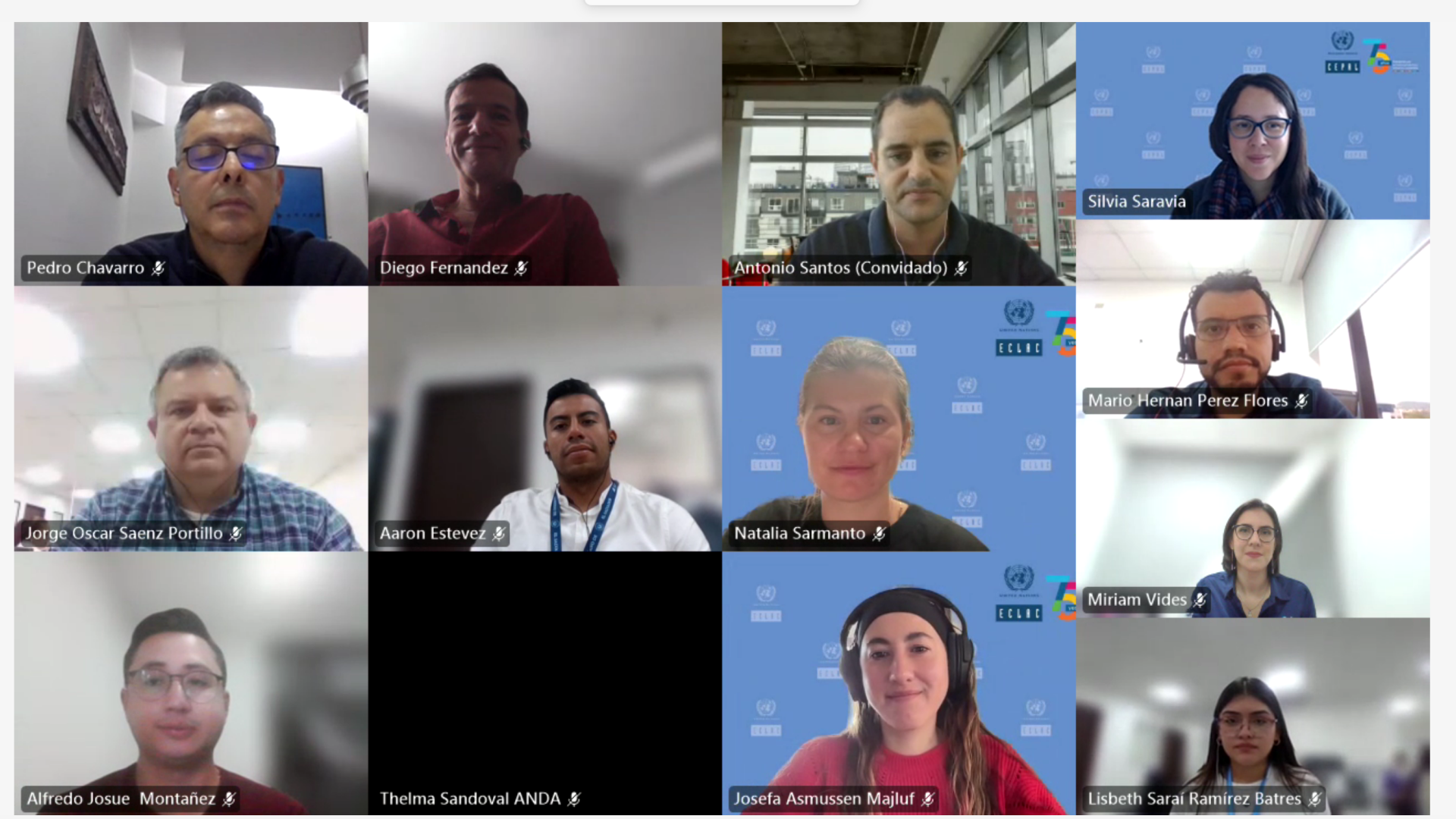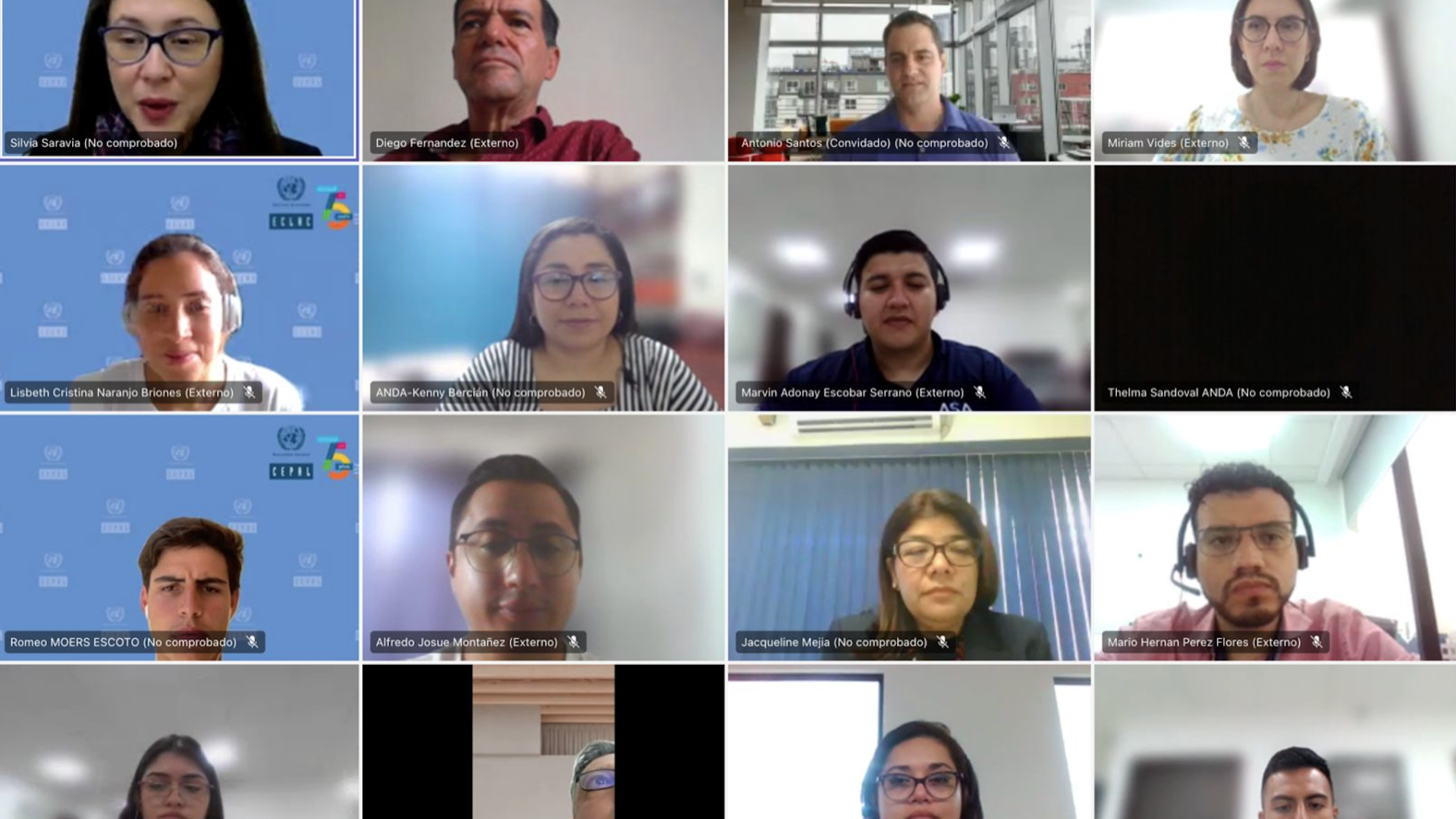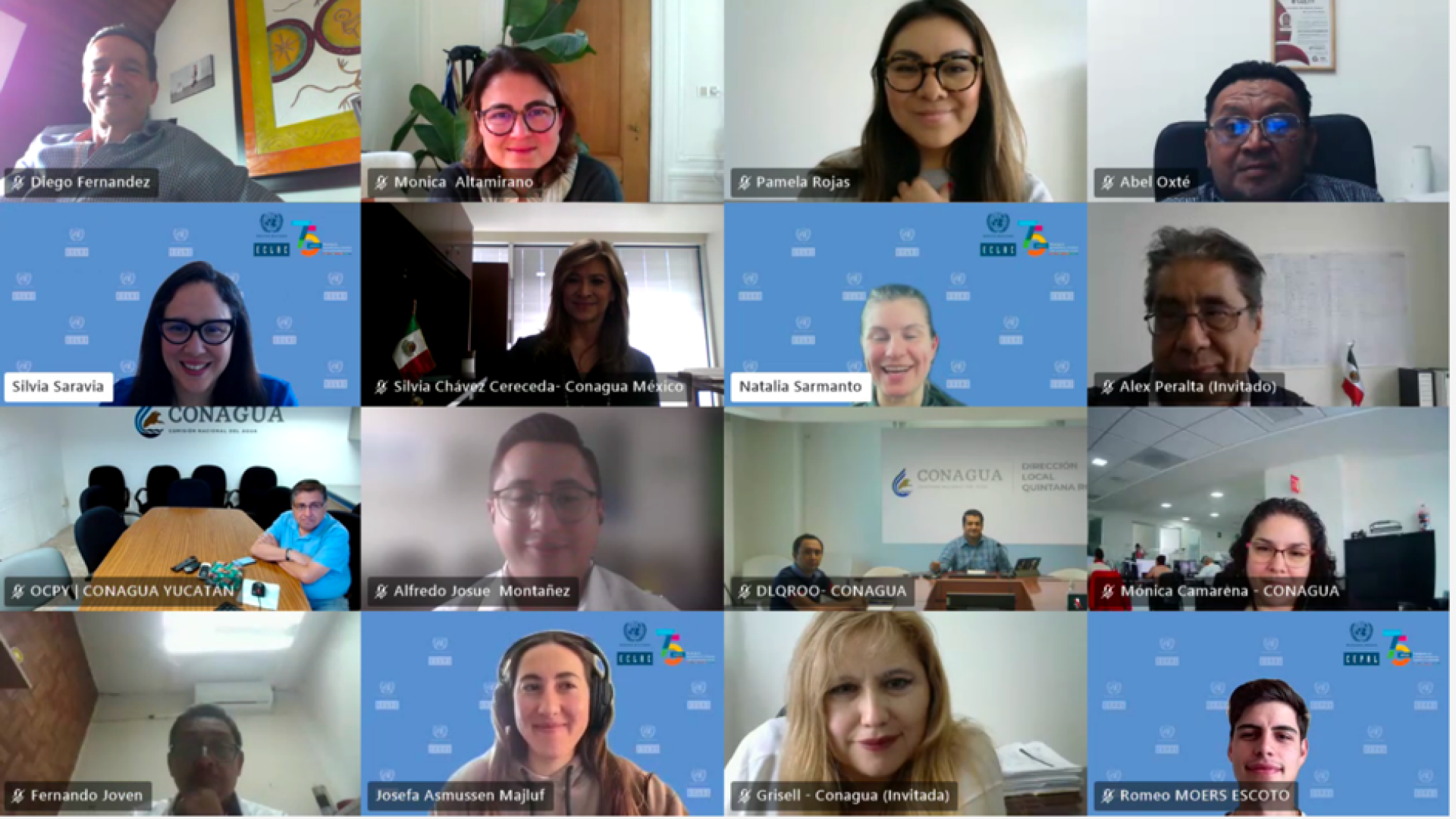Briefing note
On Friday, December 1, the presentation of the Institute for Equality and Equity for Sustainable Development from the Faculty of Legal and Social Sciences at the University of Mendoza took place. The event commenced with a warm welcome from the Dean of the Faculty, Dr. Diego Carbonell, followed by introductions by each of the four directors: Dr. Gabriela Ábalos, Dr. Marcela Andino, Dr. María Valentina Erice, and Dr. Silvina Furlotti.
Following these introductions, a report on the gaps, challenges, and opportunities related to water and gender was presented by ECLAC, available at the following link. Elisa Blanco from the Natural Resources Division, who delivered the presentation, emphasized the existence of four water and gender gaps in the region. The first gap concerns access to water and sanitation infrastructure, linking to women's health, safety, and education. For instance, in rural areas of Brazil, 37.8% of women without completed primary education lack access to clean water, compared to 29% with at least primary education. The second gap is related to water management and collection, impacting time use and employment opportunities. Women in the region dedicate 2.6 hours of unpaid work per week, often involving cleaning, hygiene, and caregiving, for every hour men dedicate. The third gap is access to water for agricultural production, where limited land ownership by women, as seen in Argentina (16.2%), negatively impacts their food security. Inequities in access to financial resources, technical assistance, and markets worsen the situation, highlighting gender discrimination in various aspects. Lastly, the governance and participation gap affect collective management. In Argentina, despite comprising 44% of rural organization members, women hold only 31% of presidencies, indicating challenges in collective water resource management. The ECLAC study aimed to analyze how these gaps are being addressed, conducting an analysis of 54 water and gender public policy instruments from 21 countries in the region.
Throughout the presentation, apart from showcasing these results, Argentine programs like "En Nuestras Manos" from the Ministry of Agriculture, Livestock, and Fisheries, focusing on empowering women farmers with irrigation technologies, were highlighted. Additionally, the "Water and Women" Program from the Irrigation Department of Mendoza aims to highlight the role of women in water usage. You can review the presentation at the following link.
Following the ECLAC presentation, Pablo A. Basz from the United Nations in Argentina provided a national overview for achieving the 2030 Agenda for Sustainable Development, and Irune Aguirrezabal Quijera, Director of the Ibero-American Program on Human Rights, Democracy, and Equality at the Organization of Ibero-American States, also gave their interventions.



